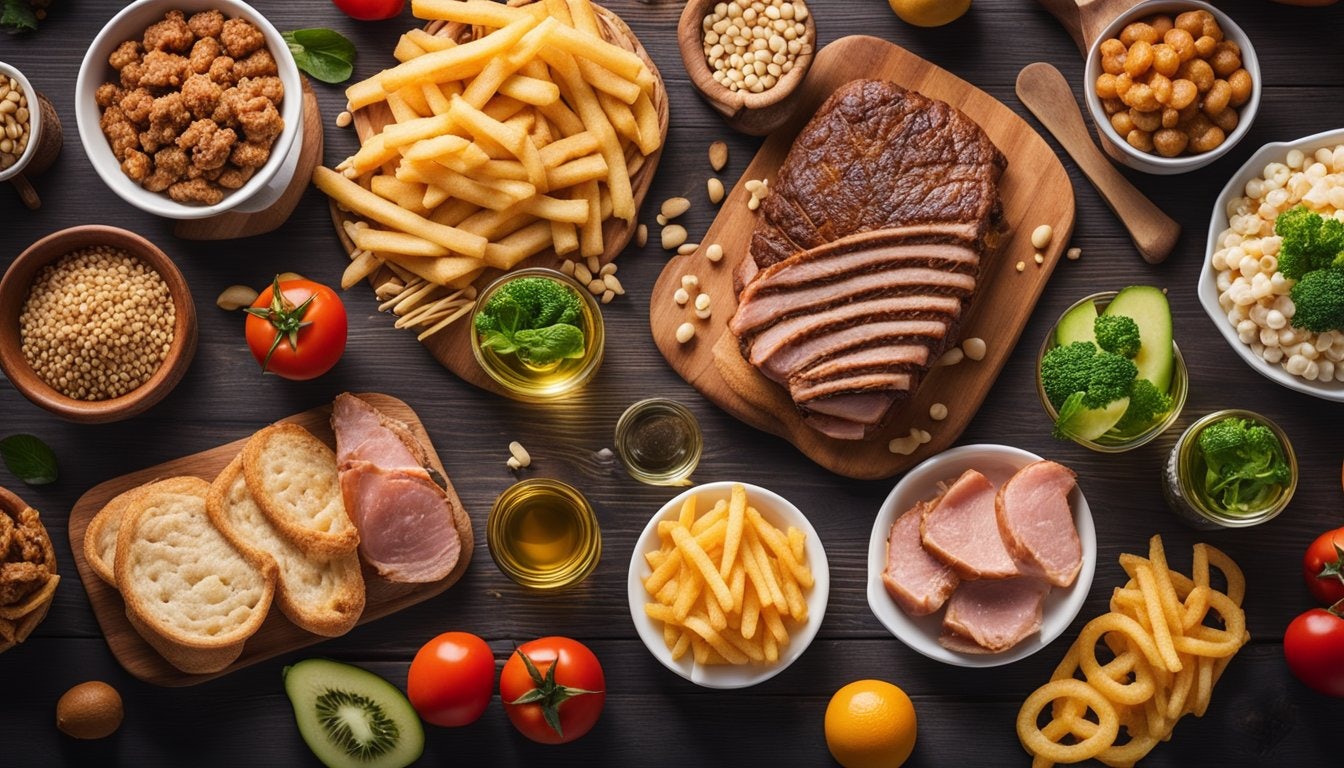
6 Foods to Avoid for Arthritis Relief: What Not to Eat!
Living with arthritis can often mean being extra careful about what you eat. Certain foods are known to aggravate arthritis symptoms, leading to increased pain, swelling, and discomfort. If you're battling this condition and eager to keep your joints happy, paying attention to your diet is key. Steering clear of specific food items can make a substantial difference in how you feel and move throughout the day.
Imagine enjoying your daily activities with reduced joint pain – it's possible when you adjust your eating habits! Identifying and avoiding foods that can potentially trigger inflammation is a proactive way to manage arthritis symptoms. Before you plan your next meal, getting to know which foods to limit or avoid can empower you on your journey to improved well-being. Let's explore the dietary choices that can help you maintain your zest for life despite arthritis.
Inflammatory Ingredients to Avoid
In managing arthritis, your diet plays a crucial role. By avoiding specific ingredients that can exacerbate inflammation, you can help reduce pain and manage symptoms more effectively.
Sugary Sweets and Refined Carbs
Cutting back on sugary sweets and refined carbohydrates is essential for your joint health. These foods can cause your body to produce pro-inflammatory cytokines.
- Sugary Sweets: Candy, pastries, sodas
- Refined Carbs: White bread, white rice, pastries
Trans Fats and Fried Foods
Steer clear of trans fats and fried foods; these culprits can promote inflammation and worsen arthritis symptoms.
- Trans Fats: Margarine, fast food, processed snacks
- Fried Foods: French fries, fried chicken, doughnuts
Nightshade Vegetables and Arthritis Pain
Nightshade vegetables may contribute to arthritis pain due to a compound called solanine. Solanine can potentially aggravate inflammation in some individuals, thereby exacerbating arthritis symptoms.
Tomatoes and Eggplants
You've likely enjoyed tomatoes and eggplants in various dishes, unaware of their potential effects on arthritis. Both contain solanine, which may cause discomfort if you're sensitive:
- Tomatoes: While a staple in healthy salads, they could trigger joint pain in susceptible individuals.
- Eggplants: Often praised for their versatility, but caution is advised for those with arthritis.
Peppers and Potatoes
In this section, discover the impact of peppers and potatoes on your arthritis pains:
- Peppers: Ranging from bell to chili, peppers add a kick to your meals, but they may also kick up inflammation.
- Potatoes: A comfort food favorite, potatoes might be less comforting for your joints due to solanine content.
Red Meat and Processed Foods
When living with arthritis, reducing the consumption of red meat and processed foods can have a positive impact on your symptoms due to their high content of saturated fats and advanced glycation end products (AGEs), which can promote inflammation.
Processed Meats
- Bacon, sausages, and deli meats: These are typically high in saturated fats and preservatives, such as nitrates, which may exacerbate inflammation.
- Advice: Opt for lean protein sources like chicken or fish.
High-Fat Dairy Products
- Items to limit: Cheese, butter, and full-fat milk contain saturated fats that can contribute to inflammation.
- Alternatives: Embrace low-fat or plant-based options such as almond or soy milk.
Alcohol and Tobacco
Indulging in alcohol and tobacco can significantly affect your arthritis condition. Both can exacerbate inflammation and pain.
Beer and Spirits
While enjoying a cold beer or a glass of spirits may sound appealing, these beverages can be problematic for you if you have arthritis. Beer is rich in purines, which your body breaks down into uric acid, potentially worsening gout, a common form of arthritis.
- Beer: High purine content; avoid to reduce risk of gout flare-ups.
- Spirits: Can increase inflammation and weaken the effectiveness of some arthritis medications.
Cigarettes and Smoke Exposure
Your arthritis symptoms can become more severe with exposure to tobacco smoke. Cigarettes are associated not only with increased arthritis-related discomfort but also with a greater risk of developing rheumatoid arthritis.
- Cigarettes: Can aggravate inflammation and increase rheumatoid arthritis risk.
- Smoke Exposure: Secondhand smoke also poses risks and can intensify joint pain and damage.
